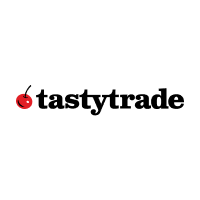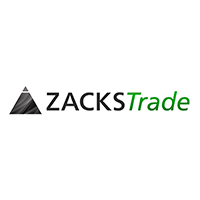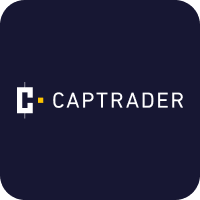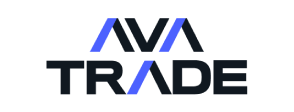Review our top 10 list of the most trustworthy and regulated options brokers in the UAE. We tested with real money accounts and compared their key criteria.
Choosing an options broker in the UAE can be challenging, as there are many options to consider. Finding a broker that is both safe and matches your investment goals requires careful research and consideration.
Evaluating brokers, comparing their features, and ensuring they are properly regulated are important steps to ensure you select a trustworthy and high-quality platform.
To make it simple to choose an options broker, we selected a list of the top 10 brokers and what types of trading they are best for, followed by feature comparisons, reviews and frequently asked questions.
Best options brokers in UAE
 1
1Interactive Brokers 4.9 Your capital is at risk.
Best for options overall. Wide range of products, and low trading fees.
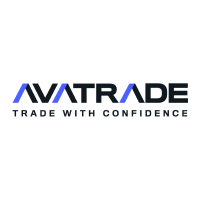 2
2AvaTrade 4.8 Your capital is at risk.
Best for beginners in options trading. Excellent deposit/withdrawal.
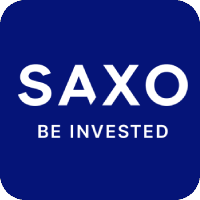 3
3Saxo Bank 4.7 Your capital is at risk.
Best for professional options traders. Advanced trading tools.
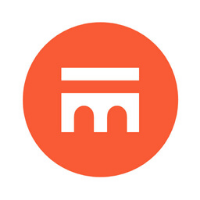 6
6Swissquote 4.4 Your capital is at risk.
Best for secure options trading. Regulated environment and a diverse product portfolio.
 7
7IG 4.3 Your capital is at risk.
Best for educational resources. Competitive trading fees and user-friendly options platform.
 8
8Tradestation 4.2 Your capital is at risk.
Best for options trading strategies. Advanced charting for active traders.
Safety and regulation overview in UAE
The UAE has a robust regulatory framework to ensure fairness, transparency, and investor protection in stock trading, creating a secure environment for investors. Key regulatory bodies include:
Securities and Commodities Authority (SCA): The SCA is the primary regulatory body for securities trading in the UAE. It oversees stock exchanges, brokers, and investment funds, ensuring compliance with local laws and protecting investors from fraud. The SCA mandates brokers to maintain high operational and reporting standards.
Dubai Financial Services Authority (DFSA): The DFSA regulates financial services in the Dubai International Financial Centre (DIFC). It ensures that brokers and financial institutions adhere to stringent standards for transparency, risk management, and investor protection.
Abu Dhabi Global Market (ADGM) Financial Services Regulatory Authority (FSRA): The FSRA governs financial activities within the ADGM, providing a robust framework for stock trading and investment services. It emphasizes market integrity and investor protection.
Central bank of the UAE: The Central Bank regulates banking and financial activities to maintain the overall stability of the UAE financial system. It also plays a role in ensuring that brokers operating in the UAE comply with capital adequacy and anti-money laundering regulations.
Investor protection mechanisms: While the UAE does not have an investor protection fund like the SIPC in the U.S., regulations under the SCA, DFSA, and FSRA ensure client funds are segregated from brokers’ operational funds, reducing the risk of mismanagement.
Tier-1 International Regulators
For UAE investors considering international brokers, working with entities regulated by Tier-1 regulators ensures additional security and transparency. Examples include:
- Securities and Exchange Commission (SEC) (USA): Sets rigorous standards for financial transparency and investor protection, making it a trusted regulator for brokers offering services globally.
- Financial Conduct Authority (FCA) (UK): Enforces stringent rules for client fund segregation, market practices, and operational integrity.
- Australian Securities and Investments Commission (ASIC): Ensures high standards of operational transparency and investor safeguards for brokers.
Cyprus Securities and Exchange Commission (CySEC): Commonly regulates international brokers serving UAE clients, with protections like the Investor Compensation Fund.
Safety and regulation comparison for top brokers
Here are some key areas that determine how trustworthy a broker is: who they’re top tier regulators are, investor protection they provide, and if they have any history of misconduct, or scandals. Take a look at the table below where we break down this information for you.
| Broker Name | ||
|---|---|---|
| Interactive Brokers | ||
| AvaTrade | ||
| Saxo Bank | ||
| Tastytrade | ||
| Mexem | ||
| Swissquote | ||
| IG | ||
| TradeStation | ||
| Zack’s Trade | ||
| Cap Trader |
Fees compared
Fees of selected platforms are compared in the table below. Interactive Brokers emerges as having the best overall fees for options trading across the various categories due to its consistent low-cost structure.
| Broker Name | ||
|---|---|---|
| Interactive Brokers | ||
| AvaTrade | ||
| Saxo Bank | ||
| Tastytrade | ||
| Mexem | ||
| Swissquote | ||
| IG | ||
| TradeStation | ||
| Zack’s Trade | ||
| Cap Trader |
Non-trading fees compared
Non-trading fees such as account, deposit and withdrawal fees are compared in the table below. Interactive Brokers has no non-trading fees to be worried about which makes opening an account even easier for new traders.
| Broker Name | ||
|---|---|---|
| Interactive Brokers | ||
| AvaTrade | ||
| Saxo Bank | ||
| Tastytrade | ||
| Mexem | ||
| Swissquote | ||
| IG | ||
| TradeStation | ||
| Zack’s Trade | ||
| Cap Trader |
Minimum deposit, deposit methods and account opening compared
Minimum deposit, deposit method, how fast it takes to open an account, and other useful information of selected platforms are compared in the table below. AvaTrade wins in this category because of the extensive deposit/withdrawal methods available to their clients. Interactive Brokers has no minimum deposit requirement.
| Broker Name | ||
|---|---|---|
| Interactive Brokers | ||
| AvaTrade | ||
| Saxo Bank | ||
| Tastytrade | ||
| Mexem | ||
| Swissquote | ||
| IG | ||
| TradeStation | ||
| Zack’s Trade | ||
| Cap Trader |
Mobile, desktop and web trading platforms compared
Trading platforms are compared in the table below. Interactive Brokers had the most intuitive and comprehensive trading platform we tested, and all brokers have access to market analysis and research for those looking to improve their knowledge on trading strategy or theory.
| Broker Name | ||
|---|---|---|
| Interactive Brokers | ||
| AvaTrade | ||
| Saxo Bank | ||
| Tastytrade | ||
| Mexem | ||
| Swissquote | ||
| IG | ||
| TradeStation | ||
| Zack’s Trade | ||
| Cap Trader |
Product selection, markets and financial assets compared
Available financial products are compared in the table below. Interactive Brokers clients have access to a wide range of options instruments across 30+ global markets.
| Broker Name | |
|---|---|
| Interactive Brokers | |
| AvaTrade | |
| Saxo Bank | |
| Tastytrade | |
| Mexem | |
| Swissquote | |
| IG | |
| TradeStation | |
| Zack’s Trade | |
| Cap Trader |
User base of top online brokers in UAE compared
The number of clients per broker are compared in the table below. eToro currently has the most recorded active users from our selection.
| Broker Name | |
|---|---|
| Interactive Brokers | |
| AvaTrade | |
| Saxo Bank | |
| Tastytrade | |
| Mexem | |
| Swissquote | |
| IG | |
| TradeStation | |
| Zack’s Trade | |
| Cap Trader |
Top options brokers in UAE reviewed
1. Interactive Brokers – Best for options overall. Comprehensive platform, wide range of products, and low trading fees.
Min Deposit: $0
US stock index options $0.65 per contract with $1 min
Available options markets 34
Islamic Account Yes
Options Commission Fee: $0.65/contract (tiered). Demo Account: Yes.
Key points:
- Offers a comprehensive range of financial products, including options, stocks, futures, forex, and bonds, making it ideal for diverse trading strategies
- Regulated by Dubai Financial Services Authority (DFSA) for UAE clients, ensuring a secure and compliant trading environment
- Known for its low commission structure, particularly in options trading, with fees starting at $0.15 per contract
- Features the Trader Workstation (TWS), a professional-grade platform equipped with advanced analytics, customizable trading tools, and risk management features
- Provides multi-currency accounts, including AED support, allowing seamless deposits and withdrawals for UAE-based traders
Pros:
- Access to a wide range of global options markets, including US, European, and Asian exchanges
- Highly competitive pricing for options trading, with transparent fees that cater to high-frequency traders
- Advanced tools for options strategies, such as multi-leg trades, volatility analysis, and real-time pricing
- Regulated by DFSA, providing added security and credibility for UAE clients
- AED account support reduces the cost and hassle of currency conversions
Cons:
- Complex platform interface may overwhelm beginners, making it more suitable for experienced traders
- High inactivity fees for low-volume traders or dormant accounts
- Limited Arabic-language support, which may hinder communication for some UAE-based clients
63.3% of retail investor accounts lose money when trading CFDs with IBKR.
2. AvaTrade – Best for beginners in options trading. Intuitive platform and excellent deposit/withdrawal flexibility.
Options Commission Fee: Not offered (no standard options). Demo Account: Yes.
Key Points:
- Focuses on CFD trading across forex, stocks, indices, commodities, and cryptocurrencies, providing access to over 1,000 financial instruments
- Regulated by the Abu Dhabi Global Market (ADGM) under the Financial Services Regulatory Authority (FSRA), ensuring compliance with UAE standards
- Supports options trading through AvaOptions, offering tools for risk management and strategic planning tailored to options traders
- Offers user-friendly platforms, including MetaTrader 4 (MT4), MetaTrader 5 (MT5), and the proprietary AvaTradeGO mobile app
- Caters to UAE clients with multiple deposit methods, although AED is not directly supported, requiring currency conversion
Pros:
- AvaOptions platform provides tools for options trading, including risk/reward analysis and volatility tracking
- Sharia-compliant Islamic accounts available, accommodating Muslim traders with interest-free options
- Competitive spreads for forex and CFDs, making it suitable for cost-conscious traders
- Mobile-first approach, with AvaTradeGO offering intuitive navigation and advanced trading tools
- ADGM regulation ensures a secure and transparent trading environment for UAE clients
Cons:
- No direct AED support for deposits or withdrawals, leading to potential conversion fees
- Options trading availability is limited compared to larger brokers, focusing primarily on forex and commodity options
- Fewer advanced tools for professional options traders compared to specialized platforms
71% of retail CFD accounts lose money
3. Saxo Bank –Best for professional options traders. Advanced trading tools and robust market research.
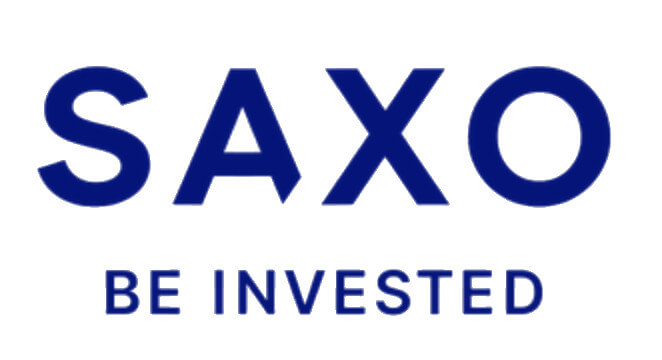
Min Deposit: $0
US stock index options $2 per contract; VIP $0.75 per contract
Available options markets 20
Islamic Account No
69% of retail investor accounts lose money when trading CFDs with this provider.
Options Commission Fee: $1-$3/contract (varies). Demo Account: Yes.
Key points:
- Specializes in CFD, options, and multi-asset trading, offering access to over 35,000 financial instruments, including forex, stocks, bonds, ETFs, and commodities
- Regulated by the Dubai Financial Services Authority (DFSA), ensuring a compliant and secure trading environment for UAE-based clients
- Advanced platforms: SaxoTraderGO for everyday traders and SaxoTraderPRO for professionals, featuring robust analytical tools and customizable interfaces
- Focused on delivering professional-grade tools, ideal for institutional and high-net-worth traders
- Known for its comprehensive market research and educational resources to support informed decision-making
Pros:
- Unparalleled access to global markets, including UAE-listed assets and international options exchanges
- Professional-grade trading platforms, including SaxoTraderPRO, with detailed charting tools and custom layouts
- Transparent pricing structure, offering tiered pricing for active traders
- Strong focus on advanced options trading tools, such as strategy builders and risk analytics
- Regulated by DFSA, ensuring a secure trading environment tailored for UAE clients
Cons:
- High minimum deposit requirement ($5,000), which might deter beginners or casual traders
- Complex pricing and margin requirements for options and CFDs, potentially overwhelming for less experienced traders
- Limited Arabic-language support, primarily catering to English-speaking clients
69% of retail investor accounts lose money when trading CFDs with this provider.
4. Tastytrade – Best for active options traders. Outstanding educational materials and excellent trading tools.
Min Deposit: 0
US stock index options $1 per contract
Available options markets 8
Islamic Account No
Options Commission Fee: $1 open, $0 close (max $10/leg). Demo Account: Yes.
Key points:
- Focuses on options trading, offering a streamlined and intuitive platform for retail traders
- Global access to derivatives markets, including options, futures, and futures options, alongside stocks and ETFs
- Regulated by international authorities (SEC & FINRA), but not directly regulated by UAE financial bodies like the DFSA or ADGM
- Emphasizes education-driven trading, with a wealth of proprietary content, tutorials, and live trading shows tailored for options traders
- Designed for active traders with tools for advanced strategy building and quick execution
Pros:
- Specialized in options and futures, offering low commissions and flat-rate pricing
- Extensive educational resources, including videos, live shows, and webinars focused on trading strategies
- Intuitive platform tailored for multi-leg options strategies, with real-time risk analysis and visualized profit/loss potential
- Commission-free stock and ETF trading, appealing to those combining options with other investments
- Streamlined mobile app for on-the-go trading with seamless integration
Cons:
- Not directly regulated in the UAE, which might concern some UAE-based clients
- Limited range of assets compared to multi-asset brokers like Saxo Bank or Interactive Brokers
- No Arabic-language support, primarily catering to English-speaking traders
- High inactivity fees may apply for less active accounts
5. Mexem – Best for algorithmic options trading. Extensive product range and competitive trading fees.

Min Deposit: $0
US stock index options $2 per contract
Available options markets 34
Islamic Account No
Options Commission Fee: $0.65/contract (tiered). Demo Account: Yes.
Key points:
- Wide-ranging market access across global exchanges, specializing in options, stocks, ETFs, and futures
- Operates as an Introducing Broker for Interactive Brokers, providing clients access to IBKR’s trading platforms and infrastructure
- Offers low-cost trading with competitive commissions tailored for options traders
- Not directly regulated in the UAE but complies with European financial regulations, including oversight by CySEC and other EU regulators
- Features an intuitive trading interface, making it a cost-effective option for retail and professional traders
Pros:
- Competitive options commissions, often lower than industry standards for frequent traders
- Access to Interactive Brokers’ trading platforms, including Trader Workstation (TWS), Client Portal, and mobile apps
- Extensive market coverage, including U.S. and European exchanges
- Transparent fee structure with no hidden costs for active accounts
- Customizable tools for multi-leg options strategies, portfolio risk management, and advanced analytics
Cons:
- Not directly regulated by UAE financial authorities, such as DFSA or ADGM
- Limited Arabic-language support, focusing on English and European languages
- Complex trading interface may intimidate beginners
- No local AED deposit/withdrawal options, which can lead to currency conversion fees
6. Swissquote – Best for secure options trading. Regulated environment and a diverse product portfolio.

Min Deposit: 0
US stock index options $1.99 per contract with $5 min
Available options markets 6
Islamic Account Yes
84.5% of retail investor accounts lose money when trading CFDs with this provider.
Options Commission Fee: $1.99/contract (min $5). Demo Account: Yes.
Key points:
- Comprehensive trading options, including CFDs, forex, stocks, ETFs, bonds, and options, across global markets
- Regulated by Swiss Financial Market Supervisory Authority (FINMA) and other Tier-1 authorities, ensuring secure and compliant operations
- Offers a dedicated online trading platform with professional-grade tools for options trading and analysis
- Not directly regulated in the UAE, but provides access to UAE traders through international operations
- Focus on wealth management services alongside trading, catering to both retail and institutional clients
Pros:
- Wide range of financial instruments, including advanced options strategies and a diverse CFD portfolio
- Professional-grade platforms, including Advanced Trader and MetaTrader 5, tailored for experienced traders
- Competitive pricing for options and CFD trading, appealing to high-volume traders
- Robust educational resources and market insights, supporting informed decision-making
- Reputation for Swiss-quality financial services, emphasizing security and transparency
Cons:
- No direct regulation by UAE authorities, such as DFSA or ADGM
- Limited Arabic-language support, primarily catering to English-speaking clients
- No AED support for deposits or withdrawals, resulting in potential currency conversion costs
84.5% of retail investor accounts lose money when trading CFDs with this provider.
7. IG – Best for educational resources. Competitive trading fees and user-friendly options platform.

Min Deposit: $5500
US stock index options $0.1 per contract
Available options markets 12
Islamic Account No
Options Commission Fee: $1 open, $0 close (max $10/leg). Demo Account: Yes.
Key points:
- Diverse trading instruments, including CFDs, forex, indices, commodities, and options, with access to over 17,000 markets
- Regulated by the Dubai Financial Services Authority (DFSA), ensuring compliance with UAE financial regulations
- User-friendly platforms, such as the IG web platform and mobile apps, designed for both novice and experienced traders
- Educational resources and market analysis tools to support informed trading decisions
- Competitive spreads and transparent fee structures, appealing to cost-conscious traders
Pros:
- Extensive market access, including options trading on various assets like forex, indices, and commodities
- Advanced risk management tools, including guaranteed stop-loss orders, to help manage trading risks
- Comprehensive educational materials, including webinars and courses, to enhance trading knowledge
- 24/7 customer support, ensuring assistance is available whenever needed
- No minimum deposit requirement, making it accessible for traders with varying capital levels
Cons:
- Limited Arabic-language support, which may be a consideration for some UAE-based clients
- Inactivity fees may apply after two years of no trading activity
- No direct AED support for deposits or withdrawals, potentially leading to currency conversion fees
75% of retail CFD accounts lose money
8. TradeStation – Best for options trading strategies. Advanced charting and seamless platform for active traders.

Min Deposit: $0 ($2000 – Margin account; $25000 – Day Trading account; $5000 – Futures account)
US stock index options $0.6 per contract (additional $5 fee for non-US clients)
Available options markets 10
Islamic Account No
Options Commission Fee: $0.60/contract. Demo Account: Yes.
Key points:
- Specializes in options, futures, and equities trading, offering advanced tools for active and professional traders
- Not directly regulated in the UAE, but operates globally under FINRA (USA), SIPC, and CFTC for compliance in international markets
- Offers TradeStation Desktop, Web Trading, and a Mobile App, providing a robust trading environment for multi-asset trading
- Focuses on low-cost options trading, with pricing models tailored for high-frequency traders
- Provides free educational content and tools like OptionStation Pro, catering to options-focused clients
Pros:
- Advanced trading platforms with customizable features and professional-grade tools for options analysis
- Low-cost options trading, with competitive commissions for high-volume traders
- Access to real-time market data and advanced charting tools for technical analysis
- Comprehensive educational resources, including webinars and tutorials focused on options and futures
- Strong emphasis on algorithmic trading, with tools to build, test, and deploy custom trading strategies
Cons:
- Not regulated by UAE authorities like DFSA or ADGM, which may concern some UAE-based traders
- No Sharia-compliant accounts, limiting appeal for Muslim traders
- High platform complexity may be overwhelming for beginners
- No AED support for deposits or withdrawals, potentially resulting in conversion fees
9. Zacks Trade – Best for research and low-cost options trading. Excellent customer support and robust tools.

Min Deposit: 0
US stock index options $1 for first + $0.75 for each additional contract
Available options markets 34
Islamic Account No
Options Commission Fee: $1 first, $0.75/additional. Demo Account: Yes.
Key points:
- Specializes in low-cost options, stocks, and ETFs trading, with competitive pricing for international markets
- Not directly regulated in the UAE, but operates under FINRA (USA) and SIPC, ensuring compliance and investor protection
- Provides access to 90+ global markets, including major exchanges like NASDAQ, NYSE, and LSE
- Supports the Interactive Brokers platform, known for its advanced trading tools and extensive market access
- Focused on offering low-margin rates and cost-efficient trading for active and professional traders
Pros:
- Access to 90+ global markets, making it ideal for diversified international trading
- Competitive options pricing with low commissions and margin rates
- Leverages the Interactive Brokers platform, offering professional-grade tools for options analysis
- No inactivity fees, making it cost-effective for occasional traders
- Extensive research tools and market data, catering to informed decision-making
Cons:
- Not regulated by UAE authorities like DFSA or ADGM, which may concern UAE clients
- No Sharia-compliant accounts, limiting its appeal to Muslim traders
- The Interactive Brokers platform may be too complex for beginners
- No AED support for deposits or withdrawals, potentially leading to currency conversion costs
- Limited focus on educational resources compared to other brokers
10. Cap Trader – Best for experienced traders. Great research tools and access to global markets.

Min Deposit: $2000
US stock index options €2.00/contract
Available options markets 34
Islamic Account No
Options Commission Fee: €2.00/contract. Demo Account: Yes.
Key points:
- Specializes in options, futures, stocks, and ETFs trading, with access to over 135 global markets
- Not directly regulated in the UAE, but operates under BaFin (Germany) and uses Interactive Brokers’ infrastructure, ensuring security and compliance
- Offers low commissions and competitive margin rates, making it ideal for cost-conscious active traders
- Provides access to the Interactive Brokers platform, renowned for its advanced tools and trading capabilities
- Focused on catering to professional traders, with features like algorithmic trading support and advanced order types
Pros:
- Extensive market access with trading opportunities in over 135 global exchanges
- Low commissions for options and futures trading, ideal for frequent traders
- Professional-grade tools via Interactive Brokers’ platform, including advanced analytics and multi-leg options strategies
- Supports multi-currency accounts, allowing flexibility for UAE clients trading internationally
- Offers comprehensive market research and analysis tools for informed trading decisions
Cons:
- Not regulated by UAE authorities such as DFSA or ADGM, which may be a concern for some UAE clients
- No Sharia-compliant accounts, limiting its suitability for observant Muslim traders
- High minimum deposit ($2,000), which might deter beginners or casual traders
- No AED support for deposits or withdrawals, potentially leading to currency conversion fees
- Customer support is primarily focused on email, with limited live chat and phone support options
How to find the best options broker in the UAE
Selecting the right broker is essential for both beginner and experienced traders in the UAE. Here’s how we evaluate the best options for you:
- Safety (Regulation): We prioritize brokers regulated by trusted authorities such as the Securities and Commodities Authority (SCA), Abu Dhabi Global Market (ADGM), and Dubai Financial Services Authority (DFSA) to ensure a secure, transparent, and compliant trading environment for UAE clients. For options trading, brokers regulated by Tier-1 international authorities like the Financial Conduct Authority (FCA) in the UK or the Australian Securities and Investments Commission (ASIC) provide an additional layer of security and credibility, ensuring that options trading adheres to the highest global standards.
- Fees: We focus on brokers offering competitive and transparent fee structures specifically for options trading, including low contract fees and no hidden costs. Brokers with tiered pricing models or volume-based discounts for active options traders are especially valuable. Special attention is given to minimizing currency conversion fees and withdrawal charges, which are significant for UAE clients trading on global exchanges. Clear and predictable fee policies are essential for traders who frequently buy and sell options.
- Non-trading fees: We evaluate brokers for any hidden costs, including account maintenance fees, inactivity fees, or high withdrawal fees. Brokers with minimal or no non-trading fees are preferred for UAE clients seeking cost-effective options trading. Platforms offering favorable currency exchange rates for transactions involving USD, EUR, or other global currencies help reduce financial overhead for UAE-based options traders.
- Deposit/withdrawal, account opening: A streamlined and efficient account opening process tailored for UAE clients is critical. We value brokers with fast deposits and withdrawals that support local payment methods, including UAE bank transfers, credit cards, and region-specific gateways. Brokers offering multi-currency accounts or AED-friendly transactions eliminate additional conversion fees, enhancing the convenience and affordability of funding and withdrawing from trading accounts.
- Mobile app/trading platforms: The quality, functionality, and reliability of trading platforms are crucial for options traders. We assess brokers offering intuitive, feature-rich platforms with advanced tools for options analysis, including options chains, probability calculators, and strategy-building tools. Real-time market alerts, customizable charts, and seamless trade execution are essential for traders capitalizing on volatile options markets. Platforms that integrate multi-asset trading (options, futures, and other derivatives) provide enhanced versatility for UAE clients seeking comprehensive solutions. Mobile apps with user-friendly interfaces and full trading functionality further support active trading on the go.
Taxation for options trading in the UAE
Understanding tax implications is critical for options traders in the UAE. The UAE’s tax policies are highly favorable for both individual and institutional investors, making it an attractive environment for options trading. Here are the key considerations:
- No personal income tax: The UAE does not impose personal income tax on residents. This means that profits from options trading, whether from short-term speculation or long-term strategies, are not subject to taxation. Traders can retain their full earnings without worrying about local tax deductions.
- Corporate tax implications: As of 2023, businesses generating more than AED 375,000 in annual profits may be subject to corporate tax in the UAE. If options trading is part of a business operation, the profits may fall under this tax regime. For traders operating through corporate accounts, consulting a tax advisor is essential to ensure compliance with corporate tax laws.
- Currency conversion considerations: While there are no specific taxes on currency conversions in the UAE, options traders dealing in foreign currencies, such as USD or EUR, should be mindful of exchange rate fluctuations and potential conversion fees. These factors can indirectly impact profitability, especially when trading options on international exchanges.
- International tax obligations: For UAE residents trading options on international markets, such as those in the US or Europe, it is essential to understand the tax policies of the respective countries. Some countries impose withholding taxes on capital gains or dividends associated with certain options contracts. Checking for double taxation treaties between the UAE and the relevant countries can help determine if tax relief is available.
- Tax-free environment for individual traders: The UAE remains one of the most favorable regions globally for individual traders, with zero taxation on trading profits. However, professional traders and businesses engaged in options trading should seek expert advice to navigate international tax rules and potential liabilities effectively.
The UAE’s tax policies create a highly advantageous framework for options trading, allowing individual traders to focus on maximizing profits without the burden of local taxation.
How to trade options from the UAE
Follow these steps to begin options trading as a UAE resident, while ensuring compliance with local regulations:
1. Choose a UAE-regulated options broker: Select a broker regulated by local authorities such as the Securities and Commodities Authority (SCA), Abu Dhabi Global Market (ADGM), or Dubai Financial Services Authority (DFSA). Alternatively, opt for globally recognized brokers authorized to operate in the UAE. Key features to look for include competitive fees, advanced options platforms, and localized customer support.
2. Understand options contracts and strategies: Familiarize yourself with options basics, including calls, puts, strike prices, expiration dates, and how premiums are calculated. Study commonly used strategies, such as:
- Covered calls for income generation.
- Spreads to limit risk.
- Straddles and strangles for volatile markets.
Many brokers offer educational resources to help you understand the complexities of options trading.
3. Check local requirements: For trading local assets, ensure you meet UAE-specific requirements, including:
- Obtaining a National Investor Number (NIN) for trading UAE-listed derivatives, such as those on ADX or DFM.
- Verifying that your broker complies with local regulations for trading options or derivatives.
4. Open an options trading account: Register with your chosen broker by submitting the following documents:
- Emirates ID or valid passport.
- Proof of residence, such as a utility bill or rental agreement.
- Bank account details for funding and withdrawals.
Ensure the broker offers a specialized options trading account with features like options chains, strategy builders, and risk management tools.
5. Fund your account: Deposit funds using methods supported by your broker, such as UAE bank transfers, credit/debit cards, or e-wallets. Brokers that accept AED deposits are ideal, as they eliminate conversion fees. Verify the broker’s minimum deposit requirements, which may vary for options accounts.
6. Use a demo account: Before trading with real money, practice on a demo account. This will help you:
- Understand the broker’s options trading platform.
- Test strategies in a risk-free environment.
- Familiarize yourself with the mechanics of placing multi-leg orders and analyzing options chains.
7. Research markets and identify opportunities: Explore markets such as US stock options, global indices, or forex options. Use your broker’s tools for:
- Market research and insights to identify opportunities.
- Options scanners to filter contracts by criteria like volume, open interest, or implied volatility.
- Greeks analysis (Delta, Gamma, Theta, etc.) to measure potential risks and rewards.
8. Start trading with simple strategies: Begin trading with straightforward strategies like long calls or puts to limit risk. Gradually move to advanced techniques, such as:
- Vertical spreads for controlled risk and reward.
- Iron condors for range-bound markets.
Ensure you leverage the broker’s platform features, including real-time options pricing and multi-leg order execution.
9. Manage risks effectively: Options trading involves leverage, which can magnify both gains and losses. Minimize risks by:
- Using stop-loss and take-profit orders to limit downside or secure profits.
- Diversifying trades across asset classes and strategies.
- Limiting position sizes relative to your overall portfolio.
10. Monitor and adjust positions: Track your open positions regularly, especially as expiration dates approach. Adjust trades as needed to lock in gains, minimize losses, or hedge against market changes. Utilize alerts and notifications provided by your broker to stay updated.
11. Reinvest or withdraw profits: Decide whether to reinvest your profits in new opportunities or withdraw funds to meet personal or financial goals. Monitor your trading performance and refine your strategy over time.
Which types of trading are legal in the UAE
In the UAE, trading is regulated by authorities like the Securities and Commodities Authority (SCA), the Abu Dhabi Global Market (ADGM), and the Dubai Financial Services Authority (DFSA). These regulatory bodies ensure fairness, transparency, and investor protection. Here are the types of trading allowed in the UAE:
- Stock trading: Buying and selling shares of companies listed on UAE exchanges like the Dubai Financial Market (DFM) and the Abu Dhabi Securities Exchange (ADX), as well as international markets through approved brokers.
- Forex trading: Trading currency pairs is legal through brokers regulated by the SCA, ADGM, DFSA, or international regulators authorized to operate in the UAE.
- Derivatives trading: Trading in futures and options on regulated platforms, including commodities and financial instruments, is permitted under UAE law.
- Commodity trading: Trading physical commodities like gold, silver, and oil is legal, often conducted on platforms like the Dubai Gold and Commodities Exchange (DGCX).
- Mutual funds and bonds: Investing in mutual funds, government bonds, and corporate bonds is available through licensed brokers and financial institutions.
- Cryptocurrency trading: While not fully regulated, cryptocurrency trading is allowed under certain conditions through platforms approved by the UAE’s regulators.
It is essential to use brokers or platforms regulated by UAE authorities or internationally recognized bodies authorized to operate locally. This ensures secure, transparent, and compliant trading.
Conclusion
After analyzing and comparing the top brokers available to UAE traders across multiple categories, we have chosen Interactive Brokers as the best options broker for 2024.
Interactive Brokers excels in offering a robust platform for options trading, with competitive pricing and advanced tools designed for both professional and retail traders. Regulated by the Dubai Financial Services Authority (DFSA) and top-tier international authorities, it ensures a secure and transparent trading environment tailored to UAE clients. With access to global markets, low commissions, and highly customizable trading features, Interactive Brokers is an outstanding choice for UAE traders seeking a reliable and feature-rich platform to enhance their options trading strategies effectively.
 1
1Interactive Brokers 4.9 Your capital is at risk.
Best for options overall. Wide range of products, and low trading fees.
 2
2AvaTrade 4.8 Your capital is at risk.
Best for beginners in options trading. Excellent deposit/withdrawal.
 3
3Saxo Bank 4.7 Your capital is at risk.
Best for professional options traders. Advanced trading tools.
 6
6Swissquote 4.4 Your capital is at risk.
Best for secure options trading. Regulated environment and a diverse product portfolio.
 7
7IG 4.3 Your capital is at risk.
Best for educational resources. Competitive trading fees and user-friendly options platform.
 8
8Tradestation 4.2 Your capital is at risk.
Best for options trading strategies. Advanced charting for active traders.
FAQ
What are options contracts, and how do they work?
Options contracts give you the right, but not the obligation, to buy or sell an underlying asset (like stocks or indices) at a predetermined price before a specific expiration date.
- Call options: Allow you to buy the asset.
- Put options: Allow you to sell the asset.
This flexibility makes options a powerful tool for both speculation and hedging strategies.
What is an online broker?
In the UAE, an online broker is a financial service provider that allows you to buy and sell financial instruments such as stocks, ETFs, mutual funds, bonds, forex, and derivatives through an online platform or app. These brokers provide access to both local exchanges, such as the Dubai Financial Market (DFM) and Abu Dhabi Securities Exchange (ADX), and international markets, offering tools to monitor portfolios, analyze markets, and execute trades conveniently.
What is a stockbroker?
A stockbroker is a person or company that enables investors to buy and sell stocks or other investment assets. There are three main types of stockbrokers: full-service, discount, and online. A full-service stockbroker manages your money and investments on your behalf and may also offer financial advice.
A discount stockbroker allows you to choose your own investments but buys or sells them for you, and some also offer general information and recommendations to help you decide which assets to buy. An online stockbroker lets you buy and sell investment assets yourself through an online platform or a mobile app. Each type of stockbroker charges fees to cover the cost of running your investment account, buying and selling stocks, and/or trading in a foreign currency.
An online brokerage or investment platform is a website or app that allows you to buy, hold, and sell assets such as stocks, shares, and investment funds. Most providers offer access to companies across a range of industries and markets, including the US, UK, and Europe.
Why should I trade options instead of stocks?
Options trading offers several advantages:
- Leverage: Control large positions with a smaller upfront investment.
- Flexibility: Trade strategies like spreads, hedges, and covered calls.
- Risk management: Use options to hedge against downside risks in your portfolio.
However, options carry higher risks and require thorough understanding before trading.
What is implied volatility, and why is it important?
Implied volatility (IV) reflects the market’s expectation of price fluctuations for the underlying asset. It impacts options premiums:
- High IV: Higher premiums due to increased uncertainty.
- Low IV: Lower premiums, indicating stable market conditions.
Understanding IV is crucial for identifying the best opportunities and pricing contracts effectively.
How do I select the best options broker in the UAE?
When choosing an options broker, consider the following:
- Regulation: Ensure the broker is licensed by the SCA, ADGM, DFSA, or other Tier-1 international authorities.
- Fees: Look for brokers with low contract fees, minimal non-trading costs, and transparent pricing.
- Platform features: Choose brokers with tools like options chains, strategy builders, and analytics for Greeks (Delta, Gamma, etc.).
- Asset variety: Ensure access to global markets like US, UK, or European stock options.
What is an options chain?
An options chain is a listing of all available options contracts for a particular underlying asset. It includes:
- Strike prices: The prices at which options can be exercised.
- Expiration dates: The time remaining for the contract.
- Bid/ask prices: Market prices for buying and selling the contract.
Most brokers provide interactive options chains on their trading platforms.
Are there demo accounts for options trading?
Yes, many brokers offer demo accounts that simulate real options trading conditions. Demo accounts are essential for:
- Testing strategies without financial risk.
- Learning to use the broker’s trading platform.
- Understanding how options pricing works in live market scenarios.
What is the difference between American and European options?
- American options: Can be exercised at any time before expiration, providing more flexibility.
- European options: Can only be exercised on the expiration date, often resulting in lower premiums.
Ensure your broker specifies which type of options are available for trading.
Are UAE brokers safe?
Brokers regulated by the SCA, ADGM, or DFSA are considered safe, as they adhere to stringent operational and financial standards. International brokers regulated by Tier-1 authorities like FCA or ASIC and authorized to operate in the UAE also provide secure trading environments.
What fees should I expect when trading in the UAE?
Expect brokerage fees, account maintenance charges, currency conversion fees for international markets, and occasional withdrawal fees. Brokers with locally tailored pricing are preferable to minimize costs.
What documents do I need to trade in the UAE?
- Emirates ID or valid passport
- Proof of residence (utility bill or rental agreement)
- Bank account details
- National Investor Number (NIN) for DFM and ADX trading
Can UAE clients trade internationally?
Yes, UAE clients can trade global markets through locally regulated brokers or internationally licensed platforms authorized to operate in the UAE. Ensure the broker provides access to your desired markets and complies with local regulations.
How can I manage risks when trading options?
Managing risk is critical in options trading. Use tools and strategies like:
- Stop-loss orders: Limit losses by exiting losing positions automatically.
- Position sizing: Only allocate a small percentage of your capital to each trade.
- Diversification: Trade across multiple underlying assets or strategies.
- Hedging: Protect investments with strategies like protective puts.
What is negative balance protection?
Negative balance protection prevents traders from losing more money than they have deposited. This is especially important for leveraged trading to protect against volatile market movements.
What are ETFs, and why invest in them?
ETFs allow you to invest in a basket of assets like stocks or commodities and trade them like stocks. They offer diversification, low costs, and ease of trading, making them attractive to UAE investors looking to access both local and international markets.
How can I ensure my online trading is secure?
Use strong passwords, enable two-factor authentication, and trade through regulated brokers with encrypted platforms. Regularly monitor your account for unauthorized activity.
What is day trading, and is it suitable for me?
Day trading involves buying and selling securities within the same trading day. It requires time, quick decision-making, and a tolerance for high risk, making it better suited for experienced traders.
What is a brokerage account, and why do I need one in the UAE?
A brokerage account allows you to trade and invest in financial instruments such as stocks, ETFs, and forex. It is essential for accessing local exchanges like DFM and ADX or international markets.
Are brokerage charges negotiable in the UAE?
Some brokers may offer negotiable fees, especially for high-volume traders or business accounts. Inquire with your broker for potential discounts or tiered pricing options.
What is margin trading, and is it available in the UAE?
Margin trading lets you borrow funds to buy more securities than you could with your available capital, amplifying potential returns and risks. It is available in the UAE through brokers authorized for leveraged trading. Ensure you understand the risks before using this feature.
Do brokers in the UAE offer sharia-compliant trading?
Many brokers in the UAE provide sharia-compliant (Islamic) accounts with no interest charges, suitable for observant Muslim traders.
Which local stocks can I trade in the UAE?
UAE traders can access stocks listed on the Dubai Financial Market (DFM), Abu Dhabi Securities Exchange (ADX), and NASDAQ Dubai.
What is the National Investor Number (NIN), and why is it important?
A National Investor Number is required for trading on DFM and ADX, and you can obtain it by registering with these exchanges. More information are available in this guide on how to buy stocks in UAE.
Do UAE residents pay taxes on stock trading?
No, UAE residents are not subject to personal income tax on trading profits. However, be aware of potential taxes when trading international stocks.
Are there tax implications for options trading in the UAE?
No, the UAE does not impose personal income tax on trading profits, including options trading. However:
- International trades: Be aware of any withholding taxes on dividends or capital gains imposed by foreign markets.
- Business accounts: If options trading is part of a business operation, corporate tax rules may apply.
What are the most common assets traded in the UAE?
Stocks, ETFs, forex, commodities (like gold), mutual funds, and derivatives (futures and options) are commonly traded by UAE investors.
Can I trade cryptocurrencies in the UAE?
Yes, but only through authorized platforms such as eToro or brokers regulated by UAE authorities offering crypto assets.
What trading hours should I be aware of?
UAE stock markets operate Sunday to Thursday, with DFM and ADX trading hours typically from 10:00 AM to 3:00 PM UAE time.
What are the biggest stock exchanges in the UAE?
The biggest stock exchanges in UAE are listed below.
- The Dubai Financial Market, or DFM for short
- The Abu Dhabi Securities Exchange, or ADX for short
- The NASDAQ Dubai
What are the different stock brokerage accounts available in the UAE?
There 3 different stock brokerage accounts available in the UAE are listed below.
- Local stock brokers: is only available for people living in the UAE (both natives and expats). The Ras Al Khaimah Investment Authority (a UAE government agency) can be used instead.
- A UAE bank brokerage accounts: UAE bank accounts are available to both foreigners and nationals living in the UAE and allow users access to self directed trading and professional managed investing
- Online stock brokers: allows self directed trading, access to international markets and total control of investment through the same dashboard.
Can I invest in the UAE stock market as a tourist or expat?
Everyone can invest in the UAE stock market with a valid NIN number.
What is the role of “Greeks” in options trading?
The Greeks measure the risk and sensitivity of options contracts to various factors:
- Delta: Sensitivity to price changes in the underlying asset.
- Theta: Measures time decay, or how much the contract loses value as expiration approaches.
- Vega: Sensitivity to implied volatility.
Understanding the Greeks helps you evaluate and manage options positions effectively.
Can I trade options on UAE-listed assets?
Options trading on UAE-listed stocks or indices is limited compared to global markets. Some brokers may provide derivative products linked to local assets like the Dubai Financial Market (DFM) or Abu Dhabi Securities Exchange (ADX). Always verify asset availability with your broker.
What is assignment in options trading?
Assignment occurs when the holder of an options contract chooses to exercise their right to buy or sell the underlying asset. For example:
- Call options: Sellers must deliver the underlying asset.
- Put options: Sellers must buy the underlying asset.
Ensure you understand assignment risks when writing options contracts.
Is options trading worth it?
Options trading can be used to hedge or speculate. Generally, a common option on a liquid stock will provide a fair value relative to the stock’s price and past price movements. However, options trading may not be right for everyone. With options, you can be correct in your prediction but still lose money if your timing is poor, and options can be quite volatile. However, the owner of a stock can use puts to offset a stock’s losses if its price moves lower or could sell covered calls against their stock position to generate additional income with limited risk. Therefore, financial options are a powerful tool that is worth using if they meet your objectives and risk tolerances.
Is trading options gambling?
With any form of speculation, whether investing in popular assets like real estate or stocks, positive returns are not guaranteed. Options traders use this form of derivatives trading to take calculated risks. Some people prefer higher-risk growth stocks, while others prefer quiet companies that pay a consistent dividend. Each type of investment has its positive and negative attributes, depending on your investment objectives. Yes, options can be used to speculate with a great deal of risk, but they can also be used to reduce risk, lock in profits, or take very specific positions based on timing and price expectations. Therefore, options are a valuable tool for both speculators and hedgers.
What are the basic concepts of options trading?
These are the most commonly used terms in options trading:
- Premium – The additional price traders pay to buy an option.
- Strike price – The fixed price at which the underlying asset can be bought or sold.
- Expiration date – The exact date and time the option expires.
- In the money – We speak of ‘’In the Money’’ when an option has intrinsic value (Call: stock price lower than strike price or Put: stock price greater than strike price.
What are the best option trading strategies?
Option trading strategies are used by options traders to maximize their gains and mitigate risks. Options are financial instruments that give the buyer the right, but not the obligation, to buy or sell a particular underlying asset at a specific price before or on a predetermined date and time.
Below, our experts list the most commonly used options trading strategies:
- Covered Call – We speak of a covered call when a trader owns the underlying asset and then sells a call option on the same asset. This options trading strategy aims to earn the premium on the call option, with the only risk taken that the asset may be ‘’called away’’ at the strike price.
- Protective Put – This options trading strategy is used when a trader buys a put option for an asset they already own in the form of insurance, protecting the downside risk by guaranteeing a sell price when the asset drops in value.
- Butterfly Spread – Involves using several options contracts, each with a different strike price, limiting both risks and rewards but also heavily lowering the volatility of the total investment done across all options contracts.
- Straddle – We speak of a straddle when an options trader buys both a call and put option at the same strike price and expiry date. This options trading strategy is used when a trader expects a significant price swing but doesn’t know which direction yet.
- Strangle – Like a Straddle, but this time with the options having different strike prices. Placing a Strangle is cheaper than a Straddle, but it requires more significant price swings to be profitable.
- Iron Condor – This more advanced options trading strategy involves buying and selling call and put options at different strike prices but with the same expiration date. The strategy tries to capture profits from the low volatility of the underlying asset(s).
- Bull Call Spread – This bullish options trading strategy includes buying call options at a specific strike price while selling the same number of call options at a higher strike price. This strategy limits gains and losses, making it a relatively safe strategy.
- Bear Put Spread – With this bearish options trading strategy, traders buy put options at a particular strike price and sell the same number of put options simultaneously at a lower strike price. This strategy is being used to profit from the price decrease of the underlying asset.
Every options trading strategy mentioned above comes with its risks and rewards. Additionally, they are used based on the trader’s market sentiment and risk appetite. Know the risks involved with options trading before applying any particular strategies.
Is option trading halal?
Options trading is considered Halal by some Islamic scholars and Haram by others. Key reasons for this constant debate include:
- Options are Speculative Assets (Gharar) – As options trading is highly speculative, some consider it prohibited in Islamic finance.
- Gambling (Mairsir) – Options trading is often compared to gambling, which is considered Haram in Islamic culture.
- Interest (Riba) – Islamic or Sharia Law prohibits the usage of interest, which some options strategies utilize. Overnight positions, for example, come with swap rates, which are technically interest rates to be paid by the trader to the broker.
- Ownership Issues – Options are derivatives, meaning that traders do not own any underlying asset but profit from its price movements. This is against Islamic principles that emphasize actual economic activity.
- Multiple Scholarly Opinions and Interpretations – Islamic scholars have different views on whether options trading is Halal or Haram, with most stating it is Haram.
- Alternative Islamic Finance Products – Some brokers and trading platforms have Sharia-compliant investment products that are similar to options but adhere to Islamic principles. Our experts highly advise consulting an Islamic finance scholar or advisor before investing in or trading these financial products.
Everything you find on Business24-7 is based on trustworthy data and impartial analysis. We combine over 11 years of financial expertise with valuable reader feedback to provide accurate insights. Learn more about our methodology.



